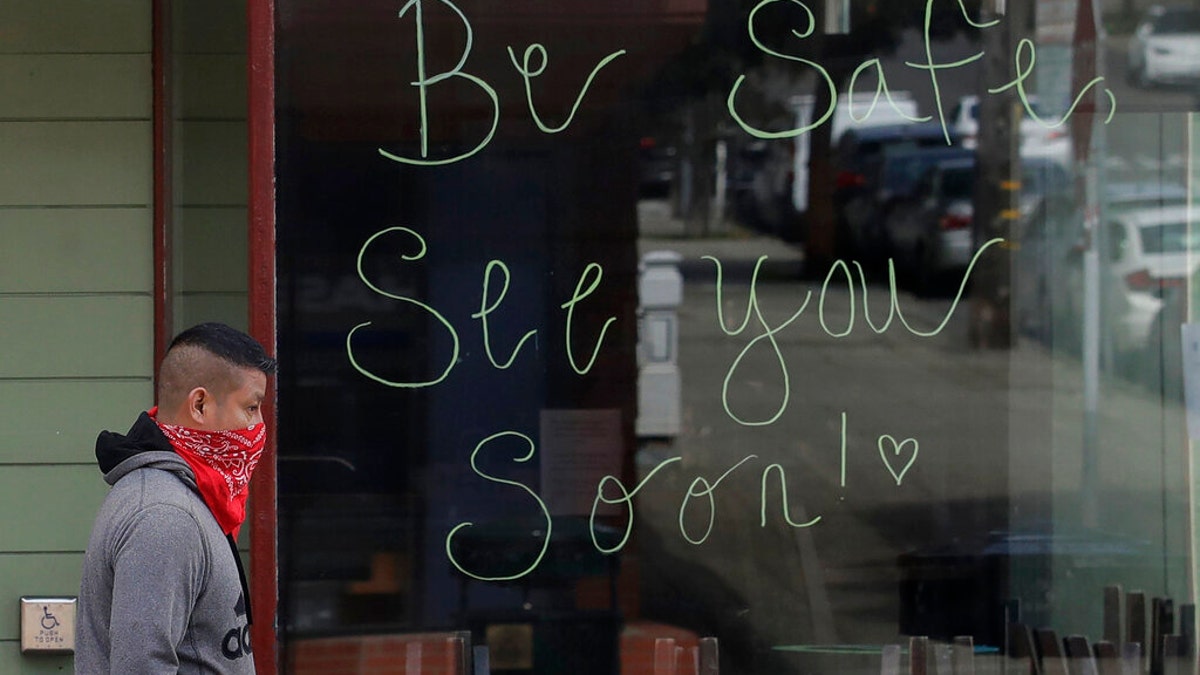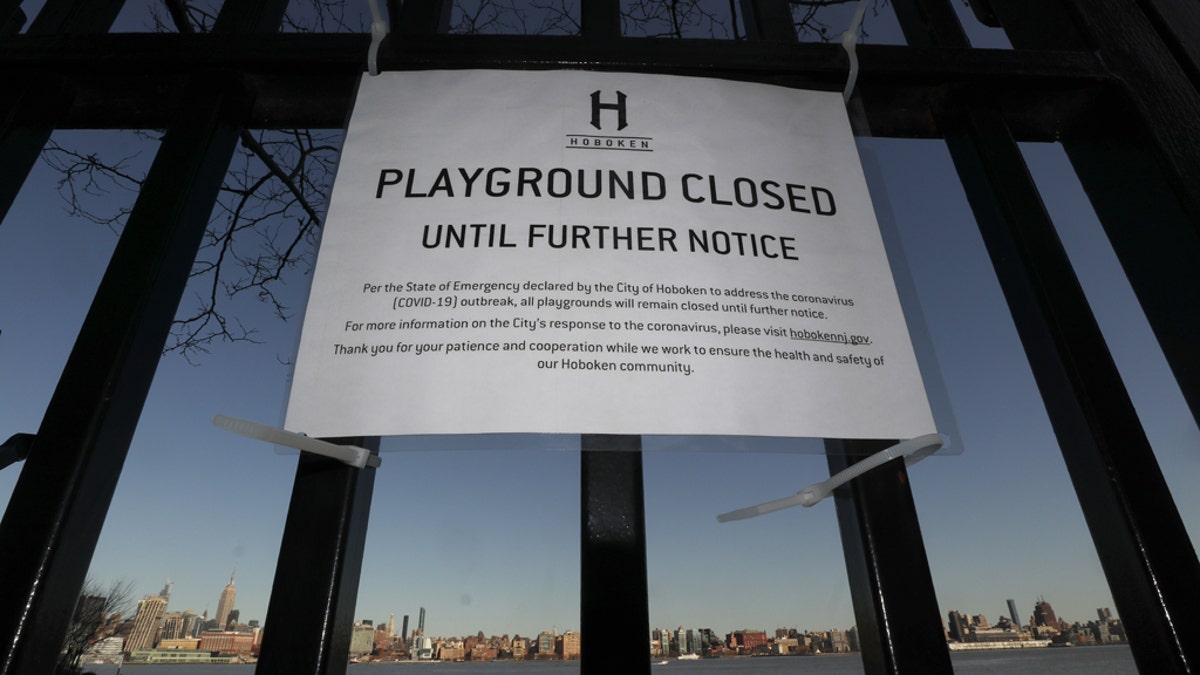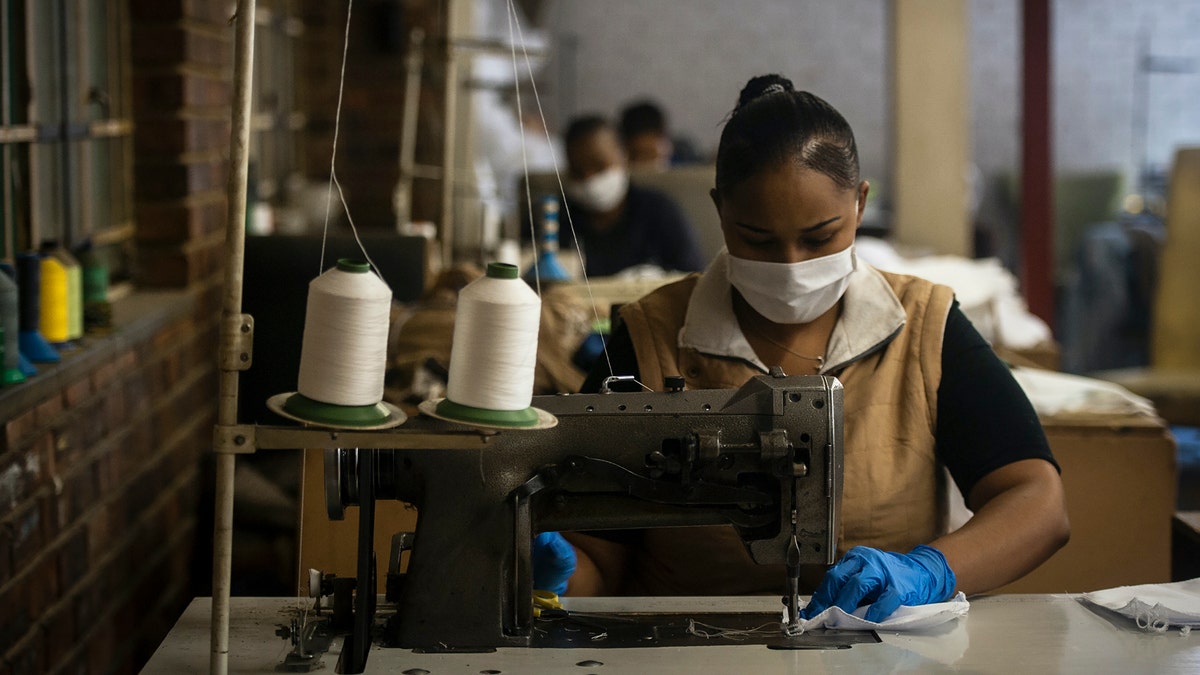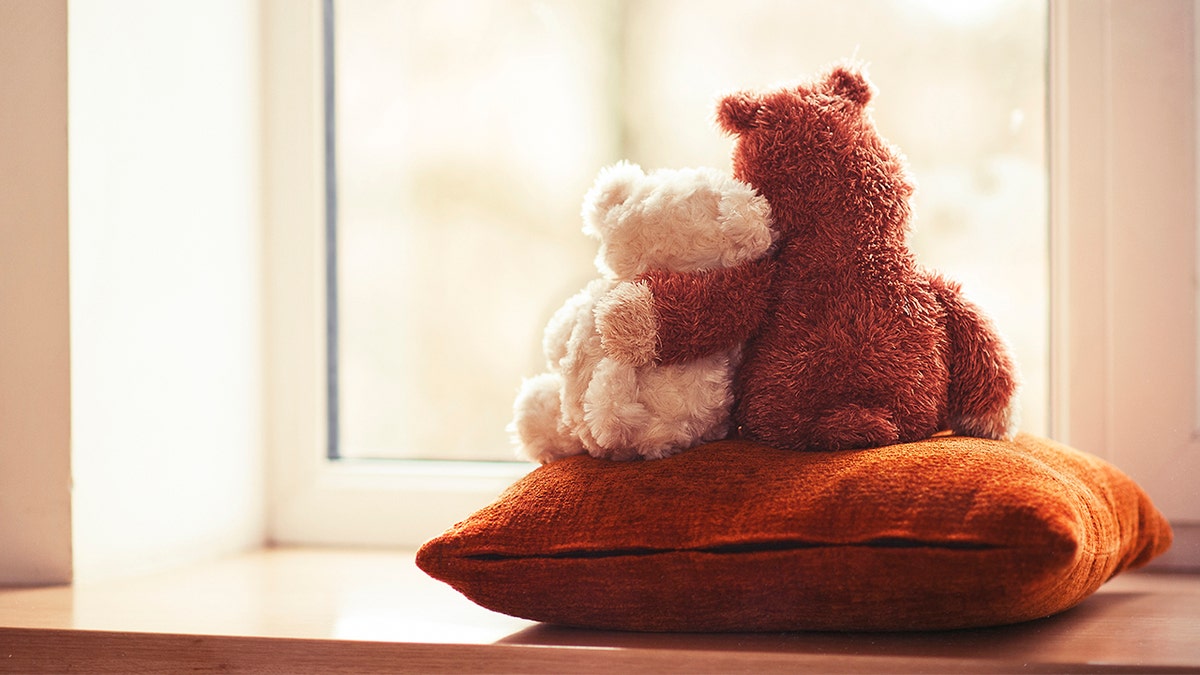Moms create coronavirus solutions for kids: Why they say their PPE face shields are more effective than cloth masks
Little Lives PPE is helping children and adults reenter the world safely amid the coronavirus pandemic. Dr. Gabrielle Page-Wilson and Alexandra Stanton founded Little Lives PPE to not only maintain the physical health of their children, but to also help children and adults alike maintain their mental health through being able to mitigate risk and safely attend school and work during COVID-19. The two founders discuss why face shields are much more effective than cloth masks in protecting the population from coronavirus.
As coronavirus continues to spread across the country and the globe, there is important information you should know about the disease, what you can do to mitigate its impact, and how you can keep yourself and others safe.
Coronavirus: Symptoms
Many symptoms of COVID-19 and influenza overlap, here's how to spot the differences.
Are digestive issues a symptom?
Could diarrhea and other gastrointestinal issues be the first signs of coronavirus?
Are the loss of smell and taste symptoms?
The loss of the ability to smell or taste could be a sign that an individual has coronavirus, according to a recent report.
The Centers for Disease Control and Prevention (CDC) has added six new symptoms to those reported to be associated with coronavirus.

Dave Jacek, 3D printing technical, wears a prototype of a 3D-printed medical face shield printed at Ford’s Advanced Manufacturing Center.
When should you go to the hospital, and when should you stay home?
There are steps you should take to protect yourself and others before heading to the doctor or emergency room that will also help protect the nation’s health care systems.
What are the levels of severity?
The severity of the novel coronavirus can differ from person to person.
Coronavirus: Transmission
How is coronavirus transmitted?
According to the CDC, coronaviruses are common in camels, cattle, cats and bats. Person-to-person transmissions are thought to occur when an infected person coughs or sneezes, similar to how influenza and other respiratory pathogens spread.
Surgeon General Jerome Adams said, “There is no evidence right now that the coronavirus can be spread through mail.”
Can I get it from using the toilet?
Scientists are still learning a great deal about COVID-19 and how it spreads, but they have learned it can be transmitted via "aerosolized feces," although it has not been proven to be high enough concentrations to cause an infection.
Can I get it from swimming pool water?
A dip in a crisp pool is all one needs to cool off on a hot day. But can coronavirus spread in pool water?
Can I get it from a drinking fountain?
There’s no evidence you can get COVID-19 from the water itself. But since the virus may linger on surfaces, experts say to avoid fountains if you can or to limit any direct contact when using them.
Is it safe to ride public transportation during the pandemic?
It depends on a variety of factors, but there are ways to minimize risk.

A man wears a bandana on his face as he walks past a sign written on the window of a Starbucks coffee shop, which was closed for coronavirus concerns, in San Francisco, Tuesday, March 24, 2020. (AP Photo/Jeff Chiu)
Can it be transmitted outdoors?
While experts agree the great outdoors reduces the risk of virus transmission as compared to confined areas with stagnant air, they also say there is still a theoretical risk.
Should I keep using my contact lenses?
Contact lens wearers are being advised to switch to glasses amid the coronavirus outbreak as doing so may lessen the urge to touch your eyes.
People with blood type A might be more vulnerable to the coronavirus, while those with type O blood could be more resistant, according to a study from China.
What are the coronavirus transmission risks?
Researchers and health experts have said the virus can stay in the air for an extended period of time, spread from person to person within close distances, and even remain some types of surfaces for days.
Coronavirus: Protecting yourself and others
What steps can I take in everyday life to reduce my risk?
Take the stairs, not the elevator, down from your hotel room. Encourage people to bring their own food and drinks to your cookout. Use hand sanitizer after banking at an ATM. Call ahead to restaurants and nail salons to make sure staff are wearing face coverings. And no high-fives — or even elbow bumps — at the gym.
What should I bring with me when venturing out?
The CDC recommends bringing three specific items with you when venturing out in public: a face covering, hand sanitizer that's made with at least 60 percent alcohol, and tissues.
If I was infected, how long until I can be with others?
For those who have tested positive for the novel coronavirus, or suspect they may be infected, knowing when it’s safe to see other people can be daunting.
Can I make my own hand sanitizer?
If you are thinking of making your own hand sanitizer at home, be very careful since there are many recipes available online that can put you in harm’s way.

(Photo by Gary Hershorn/Getty Images)
Should I be sanitizing surfaces?
The CDC says that the novel virus “does not spread easily” from touching contaminated surfaces or objects, but that doesn't mean you should stop your sanitization routine.
Am I washing my hands correctly?
There are a few general rules to follow when it comes to washing your hands thoroughly, including for how long you should keep them under running water.
Am I using hand sanitizer correctly?
Hand sanitizer is a good option when traditional hand washing is not feasible. But it won't do you much good if you don't use it correctly.
FDA hand sanitizer recall widens to over 100 products
More than 100 "dangerous" hand sanitizers have made the Food and Drug Administration's rolling list of sanitizers that have been recalled due to the presence of a toxic chemical.
We know to practice safe social distancing and frequently wash our hands to protect ourselves and our loved ones during the coronavirus pandemic — but how about our clothes?
How can I make my own face covering?
In a 45-second video, U.S. Surgeon General Dr. Jerome Adams shows Americans how to make a facial covering using an old T-shirt and two rubber bands.
What are the best materials to make a face mask with?
When making a do-it-yourself mask, what materials should you use if you have sensitive skin? What should you do if your skin becomes irritated from long-term use?
Are some face masks better than others?
Looking to update your coronavirus face mask? A recent study has identified the most and least effective face coverings, with one face mask, in particular, claiming the No.1 spot for being the most effective at curbing the spread of COVID-19.
How do I keep my face covering clean?
The CDC is recommending masks “should be routinely washed depending on the frequency of use.” The guidance recommended: “A washing machine should suffice in properly washing a face covering.”
How do I keep my glasses from fogging up?
If you are a glasses wearer, you may have noticed that wearing a face mask can cause your lenses to fog.
The eyes are a key point of infection for the novel coronavirus, a team of Hong Kong researchers said, detailing how the disease has higher rates of transmissibility through the eyes and airways when compared to H5N1, or the bird flu, and severe acute respiratory syndrome (SARS).
How to stop touching your face
Keeping your hands off your face is easier said than done: One study found that people touch their faces some 23 times an hour on average.

(AP Photo/Jean-Francois Badias)
How can I safely shop for groceries?
Staying informed about the safest ways to shop can help relieve at least some of the anxiety associated with your next supermarket visit.
Is there anything I need to know about eating takeout?
Some restaurants and fast food locations are still not open for indoor dining and are only offering takeout or delivery options.
Coronavirus: Who is at risk?
Young people, senior citizens and those with immune deficiencies could have an acute reaction if exposed to the virus.
Pregnant women infected with the coronavirus might be at greater risk for hospitalization than women who aren't pregnant, the CDC said in June, a change from previous guidance that found no difference between the groups with respect to infections.
How do I prepare for labor during the pandemic?
Dr. Manny Alvarez shares his advice on extra precautions you can take if you’re pregnant during the COVID-19 outbreak.
Giving birth during the coronavirus pandemic: Tips on staying calm
Several hospitals have moved to ban visitors or birthing partners from hospitals due to the coronavirus outbreak. There are steps you can take to help relieve anxiety.
How do I bring my newborn home?
When it comes to venturing out in public, Dr. Dane Snyder, a section chief in the division of primary care pediatrics at Nationwide Children’s Hospital, said that parents should stay home with the newborn unless "absolutely necessary."
How does coronavirus affect asthma sufferers?
It’s well known that other respiratory conditions, such as the common cold or flu, can trigger asthma symptoms, possibly leading to an asthma attack, according to the Asthma and Allergy Foundation of America. But Is the same true for the novel coronavirus?
Prevention tips for people with chronic illness
Social distancing, hand-washing and avoiding those who are sick are among the top pieces of advice given to the general public, but for the immunocompromised, there are additional steps they can take.

An Indian policeman wearing a virus themed helmet rides on a horse during an awareness rally aimed at preventing the spread of new coronavirus in Hyderabad, India, Thursday, April 2, 2020. (AP Photo/Mahesh Kumar A.)
Coronavirus: Treatment and care
Before being tested for the deadly virus, patients must first answer a series of questions.
Health agencies recommend patients receive supportive care to relieve coronavirus symptoms.
How soon could a vaccine be ready?
New vaccines typically take years to earn approval — can we really expect a coronavirus vaccine to be ready by summer 2021?
Doc warns against DIY coronavirus remedies
Several medications are being investigated, but that doesn't mean you should run out and buy them unprescribed, or try to recreate them in your home. Doing so could have dire consequences.
Do pneumonia shots protect against it?
Former CDC Chief Medical Officer Dr. Robert Amler told Fox News that a pneumonia shot will not be effective in staving off pneumonia caused by the coronavirus.
How do you care for a relative who has it?
Even if the patient does test positive, it can be considered safe to continue supporting them with some extra precautions.

Dr. Damian Caraballo was quarantined in Tampa after treating COVID-19 patients. This is message from kids in his neighborhood.
What if someone in my family has it?
The CDC recommends that if anyone in your house has tested positive, everyone in the house should self-quarantine for a minimum of 14 days or longer until the patient has no more symptoms and tests negative.
A federal agency in June released a video to help pet owners learn how to keep their furry friends safe from the coronavirus.
Tips on how to talk to your kids about coronavirus
It’s important to remember that children take cues from the adults that surround them, so how you address the virus at home may reflect in their behavior.
Coronavirus: Coping with isolation and social distancing
How do I protect my mental health?
A sudden change in routine and lack of human interaction has had a negative impact on some people’s mental health.
How do I avoid going stir crazy?
With the outbreak of the novel coronavirus (COVID-19), many people have been forced to work from home and are choosing to keep their social interactions to a minimum. Here are some tips on how to stay sane in the time of coronavirus.
Some Americans may still be wary about going to the grocery store. Is it safe to get food delivered?

A woman sews high-quality face masks at a furniture factory in Eldorado Park, Johannesburg. (AP Photo/Shiraaz Mohamed)
Working from home can have added temptations – yes, we’re looking at you, candy drawer. And also you, pantry, with three different types of potato chips.
With more and more restaurants closing their dining rooms amid the coronavirus pandemic, many people are going to have to rely on cooking their own meals.
How do I help keep my kids on track?
Parents have taken to social media to share their homeschooling failures and successes amid the pandemic.

Two embracing teddy bears looking through the window sitting on window-sill.
How do I balance work and family?
Parents are now being faced with the extra pressure of having to care for and entertain their children, while also putting in a productive day of work.
How do I deal with my grown children who are back in the house?
There's no place like home… unless it's mom and dad's house.
Just because the gyms are closed, doesn't mean you still can't stay fit.
How do I keep my relationship on track?
Going from simply living together to spending every waking moment together can be taxing on a relationship.
How can I help in my community when I'm stuck at home?
In times of uncertainty, pulling together to help is crucial to the health, well-being, and stability of our local communities.
Coronavirus: FAQ
Coronaviruses are a family of viruses named after their appearance, a crown, said Dr. Mark Rupp, an infectious disease expert at the University of Nebraska Medical Center.
What is COVID-19 and how is it different from other coronaviruses?
COVID-19 is not the same as other coronaviruses that commonly circulate among humans and cause mild illness, like the common cold. Some cause illness in people, and others, such as canine and feline coronaviruses, only infect animals. Rarely, animal coronaviruses that infect animals have emerged to infect people and can spread between people, which is suspected to have occurred for the virus that causes COVID-19.
The World Health Organization's China office says it began receiving reports in late December of a mysterious virus behind a number of pneumonia cases in Wuhan, a city in eastern China with a population of roughly 11 million people.
How does coronavirus compare to other outbreaks?
SARS and MERS came from animals, and this newest virus almost certainly did, too.






